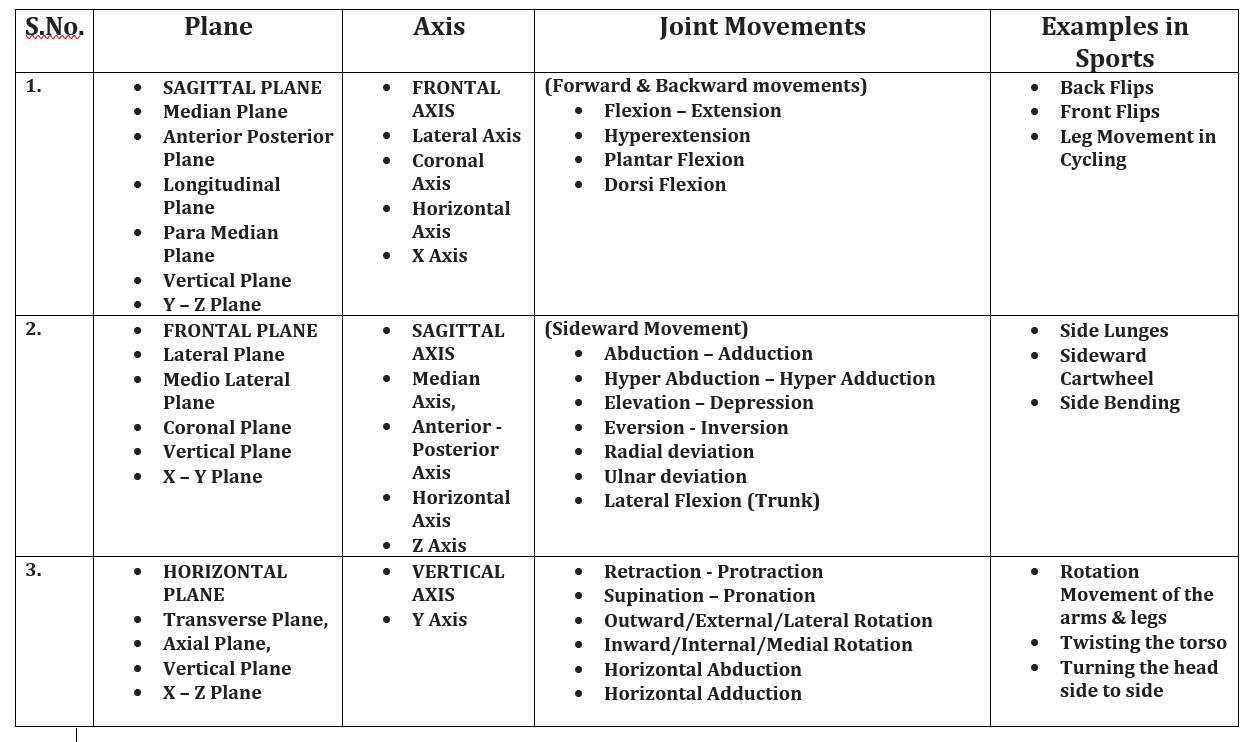What are the planes and axes of joint movements, and what are some examples of these in sports?

Understand the Problem
The question seeks to understand the relationship between different planes and axes of movement, joint movements, and examples of these movements in sports. It is likely looking for an explanation or summary of these concepts.
Answer
Movements occur on sagittal, frontal, and transverse planes, each with corresponding axes and joint movements.
Movements occur on three planes: Sagittal, Frontal, and Transverse. Sagittal plane involves movements like walking (flexion/extension) around the frontal axis. Frontal plane involves movements like cartwheels (abduction/adduction) around the sagittal axis. Transverse plane involves movements like spinning (rotation) around the vertical axis.
Answer for screen readers
Movements occur on three planes: Sagittal, Frontal, and Transverse. Sagittal plane involves movements like walking (flexion/extension) around the frontal axis. Frontal plane involves movements like cartwheels (abduction/adduction) around the sagittal axis. Transverse plane involves movements like spinning (rotation) around the vertical axis.
More Information
In sports, understanding planes and axes helps in analysis and improvement of athletic performance by aligning training and techniques with natural body movements.
Tips
Confusing the axis and plane can lead to misunderstanding; remember, motion happens in planes, rotating around axes.
Sources
- Planes and axes of movement - Movement analysis in sport - Eduqas - bbc.co.uk
- Understanding Planes and Axes of Movement - physical-solutions.co.uk
AI-generated content may contain errors. Please verify critical information